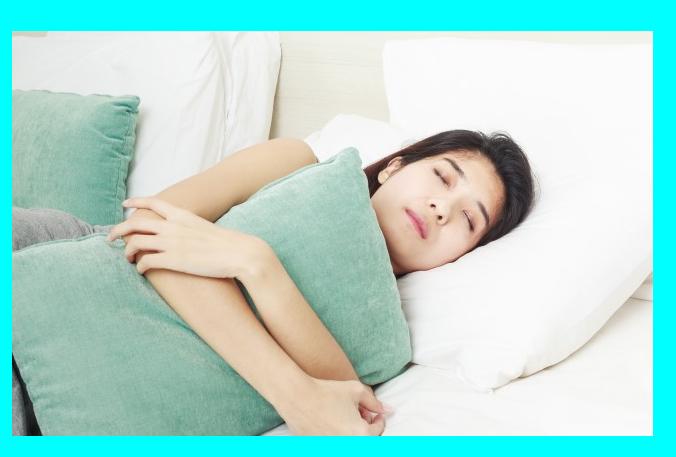Have you ever woken up in the morning with serious back pain? Your sleeping posture might be to blame. Burning stiffness in your lower back, tender spots between your shoulder blades, and neck pain that makes it hard to even turn your head are all potential consequences of your sleeping position.
If you’re looking for answers, back pain specialists in NJ understand this frustrating cycle all too well. In this guide, we’ll share how your sleeping habits might be hurting, and expert-backed solutions so you can sleep better.
How Sleep Position Affects Back Pain
There’s a well-documented connection between sleep posture and back pain. Sleeping in certain positions can pull your spine out of its natural alignment.
Over time, this stresses the muscles, joints, and soft tissues in your back, especially the lower back.
Research shows that some sleep positions make this worse. For example, sleeping on your stomach forces your neck and spine into awkward angles.
Even side or back sleeping, recommended over stomach sleeping, can lead to strain. If your hips, shoulders, or lower back don’t have enough support, they can cause pain.
Poor sleep posture also reduces sleep quality. When you’re uncomfortable, you tend to toss, turn, or wake up throughout the night.
Breaking up your sleep patterns lowers your body’s ability to manage pain. But it doesn’t have to. Understanding the relationship between posture and sleep quality leads to a better night’s sleep.
Common Sleep Positions and Their Impact on Pain
How you sleep plays a big role in how your back feels each morning. Certain sleep positions keep your spine aligned, while others stress your back.
Sleeping on your stomach is one of the worst positions for back pain. This posture forces your neck and lower back into awkward positions.
Side sleeping is generally a better option, but it isn’t perfect. Without proper support, your hips and knees may shift out of alignment.
Sleeping on your back does a better job of supporting the spine’s natural curve. But your mattress and pillow need to provide adequate support.
Many people with chronic low back pain toss and turn throughout the night, trying to find the most comfortable position. There’s no universal “best” sleep posture.
Back pain specialists in NJ tell patients to keep their spine neutral and supported while they sleep.
How Sleep Quality Influences Pain
Your sleep position matters, but so does the quality of your sleep. When you don’t sleep well, your body struggles to regulate pain.
Research shows that poor sleep lowers your brain’s ability to manage pain signals. People who are sleep-deprived are more sensitive to pain.
These elements feed off each other. Back pain disrupts your sleep, and poor sleep makes back pain worse.
Improving your sleep posture and sleep quality can help you break this cycle. When you sleep deeply and comfortably, your muscles relax and your body heals.
Practical Ways to Eliminate Sleep-Related Pain
If you’re waking up with back pain, there are simple, practical steps you can take. Many of them come recommended by back pain specialists in NJ to help you feel better in the morning.
Choose the Optimal Sleeping Position
The position you sleep in has a huge impact on your spinal health. If you’re a stomach sleeper, try sleeping on your side or back.
When sleeping on your side, put a pillow between your knees. This keeps your hips aligned, which provides crucial support.
If you’re a back sleeper, put a small pillow under your knees. It’ll take tension off your lower back and maintain your spine’s natural curve.
Select the Right Mattress Firmness
Your mattress should provide proper support without creating pressure points. A medium-firm mattress often works best for back support.
If your mattress is more than eight years old, it might be too worn to provide the support you need. Think about replacing it if that’s the case.
Everyone has their own mattress preferences and body types, but the right support helps you get better sleep.
Use Appropriate Pillow Support
Your pillow should keep your neck aligned with your spine. Too high or too flat, and you risk neck and back pain.
Memory foam or orthopedic pillows often provide better support than standard pillows. If you have chronic pain, look into specialized options.
Like your mattress, if your pillow loses its supportive qualities, replace it. Even good pillows wear out over time.
Pre-Sleep Stretching Routine
Tight muscles can make back pain worse overnight. Gentle stretching before bed helps loosen your muscles and prepare your body for sleep.
Focus on stretches that target your hips, hamstrings, and lower back. Even five to ten minutes can make a significant difference.
A regular stretching routine makes you more flexible, reducing your chances of waking up in pain.
Maintain Consistent Sleep Schedules
Irregular sleep patterns can affect sleep quality and increase your sensitivity to pain. Try to go to bed and wake up at the same time every day.
This helps your body maintain a healthy sleep rhythm and improves sleep quality. Consistency plays a big role in pain management.
Many back pain specialists in NJ emphasize the importance of sleep schedules as part of a comprehensive pain treatment plan.
When to Seek Professional Help
While small changes to your sleep habits can help, sometimes the problem requires expert intervention. Back pain specialists in NJ offer comprehensive evaluation and treatment options.
You should seek help if your pain lasts for several weeks or keeps getting worse. Persistent morning discomfort is a warning sign.
Pain that disrupts your sleep or sharp, shooting pain in your back, hips, or legs warrants professional attention.
If you can’t find any comfortable sleep position, it’s definitely time to see a back pain specialist in NJ.
A specialist can check your spine, muscles, and sleep habits to find the cause of your pain. They may recommend a treatment plan that includes physical therapy, posture coaching, or other care options.
Getting professional help early can prevent your pain from becoming a long-term issue. If you are looking for back pain relief in NJ, a specialist is your best resource.
Sleeping and Back Pain FAQs
What is the best sleeping position for back pain?
Sleeping on your back or side is generally recommended. Back sleeping helps maintain the natural curve of your spine. Side sleeping, with a pillow between your knees, aligns your hips and reduces lower back strain.
How often should I replace my mattress to prevent back pain?
Replace most mattresses every 6 to 8 years. An old mattress can lose its support, leading to poor spinal alignment and increased back pain.
What type of pillow is best for back pain?
The ideal pillow supports the natural curve of your neck and keeps it aligned with your spine. Memory foam or orthopedic pillows are often recommended by back pain specialists in NJ.
Can stretching before bed help with back pain?
Yes, gentle stretching before bed can loosen tight muscles and reduce back pain. Focus on stretches that target your hips, hamstrings, and lower back.
When should I see a back pain specialist in NJ for sleep-related pain?
You should consult a specialist if your back pain is persistent, disrupts your sleep, or worsens over time. Sharp, shooting pains or not being able to find a comfortable position also need professional evaluation.
How does poor sleep quality affect back pain?
Poor sleep quality increases your sensitivity to pain, making existing back pain feel more intense. It also disrupts your body’s natural healing processes, leading to a cycle of pain and poor sleep.
Sleep Better, Wake Up Without Pain
The way you sleep can either support your back or cause you pain every day. Poor sleep posture and restless nights don’t just leave you feeling tired—they can fuel ongoing back pain.
By paying attention to how you sleep, improving your mattress and pillow setup, and making time to stretch before bed, you can protect your back.
And if the pain continues, don’t wait to get help. A back pain specialist in NJ can help you identify the problem and get you on the path to restful, pain-free sleep.
Your nights should help you recover—not add to your pain. With the right habits and support from qualified back pain specialists in NJ, you can start each day feeling stronger and more comfortable.
Ready to transform your sleep and end morning pain? Schedule an appointment with a trusted back pain specialist in NJ today and take the first step toward pain-free mornings.
Resources:
Examining relationships between sleep posture, waking spinal symptoms and quality of sleep: A cross sectional study
Cary D, Jacques A, Briffa K (2021) Examining relationships between sleep posture, waking spinal symptoms and quality of sleep: A cross sectional study. PLOS ONE 16(11): e0260582. https://doi.org/10.1371/journal.pone.0260582
Ylinen, J., Häkkinen, A., Kautiainen, H., & Multanen, J. (2024). Preferences and Avoidance of Sleeping Positions Among Patients With Chronic Low Back Pain: A Cross-Sectional Study. Cureus, 16(5), e59772. https://doi.org/10.7759/cureus.59772
Ding, W., Yang, L., Shi, E. et al. The endocannabinoid N-arachidonoyl dopamine is critical for hyperalgesia induced by chronic sleep disruption. Nat Commun 14, 6696 (2023). https://doi.org/10.1038/s41467-023-42283-6



